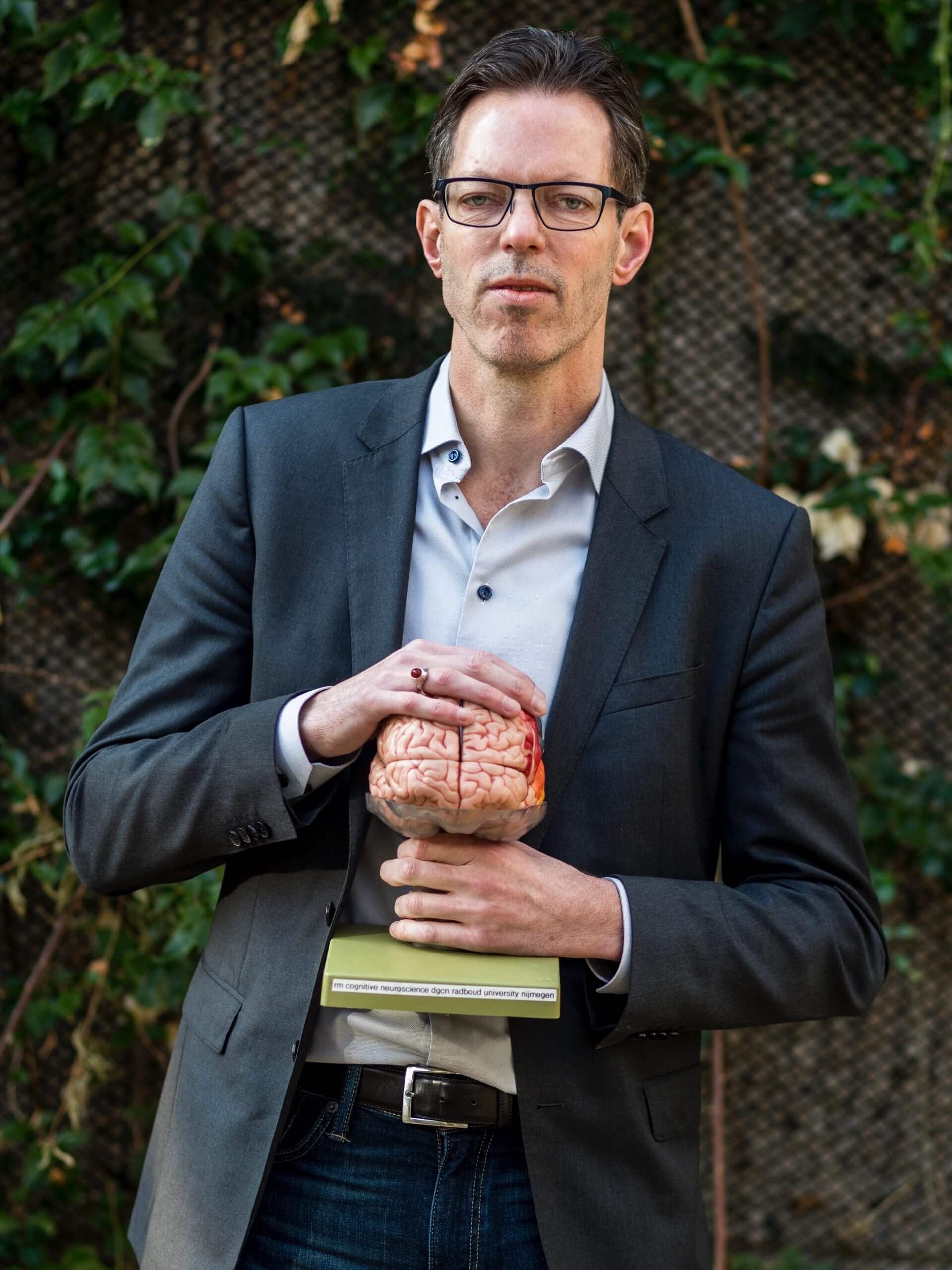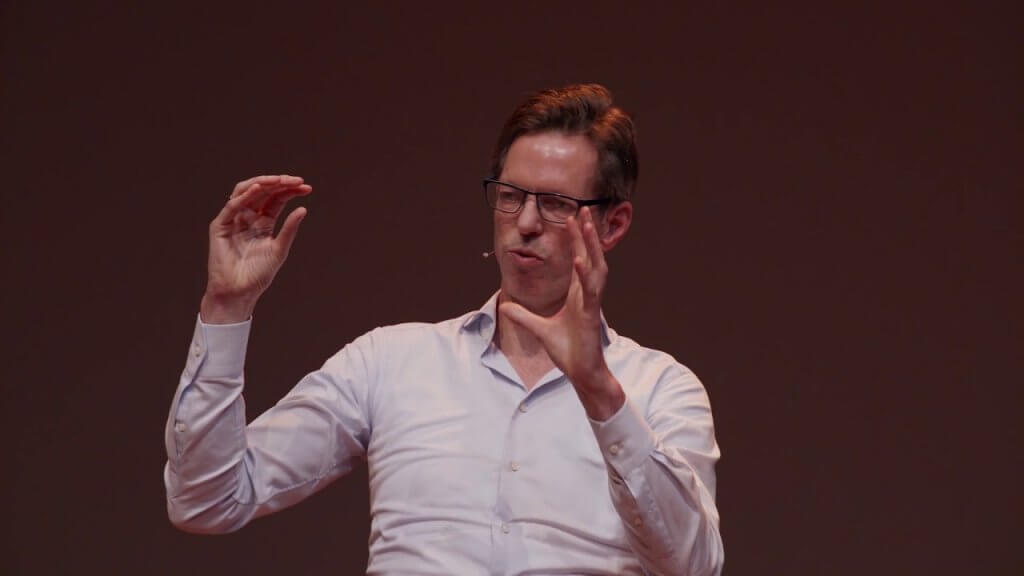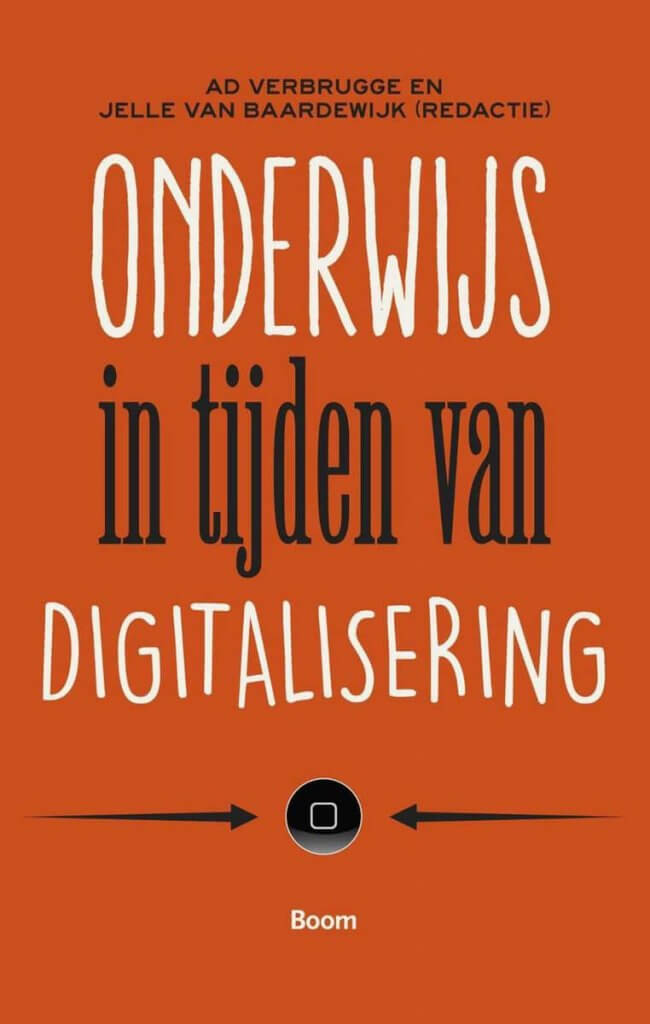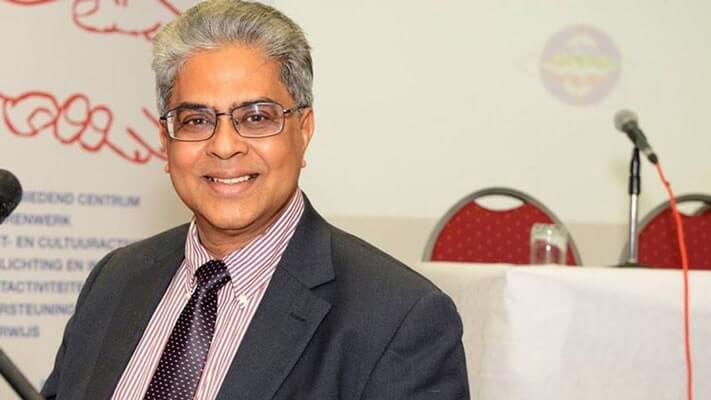Exemplary education system of prof. Bekkering

Current system does not work
by: educationalcommunity the netherlands
Amsterdam, January 4, 2022– Many educationalists seem to be jealous and squint at Harold Bekkering: “That’s because as a neuroscientist I work in the educational domain.

Moreover, I am against a system determined by cognitive development alone. It is about meaningful learning, where we teach children to remain curious.”
Harold Bekkering is professor of cognitive psychology at Radboud University in Nijmegen: “An important theme within the Dutch science agenda is to get people to continue developing their talents for a lifetime and feel good about it.
My background is in the relationship between learning and the cognitive aspect, but I find the educational perspective much more interesting because it is about making people learn. Young children have maximum learning capacity and are naturally curious. Our system then erodes those qualities.”
“It’s worrying to see that one in three 20-somethings get burned out. If you divide children into different categories and levels at the age of 12, you can expect that.
Then you are twelve and then you hear that you cannot learn well, that you mainly have practical skills and that you have to go to pre-vocational secondary education. The distinction between practical versus cognitive is a euphemism that bothers me because that distinction says nothing about VMBO or any other level.

Then a minister gets stuck in the same jargon and continues to insist on figures and excellent knowledge. In fact, we say to a pre-vocational secondary education child: you are not good enough and it will be a challenge for you to find a good job. The pressure we put on people is also immense. That’s why we have to take a tough approach to that kind of reasoning.
The system focuses on cognition and that determines the level. My wife works at a pre-vocational green school and had our garden laid out by a student. He had never passed math before, but made a beautiful well to drain the water. It contained everything: proportions, insight and practical skills. That is why I refuse to adopt that stigmatizing distinction between practical and cognitive.”
We absolutely need to learn that students can lit back because a teacher tells how to do it.
Activating Learning
“The great thing about Schooldomein is that it makes clients and architects think better about how we should set up a school, physically and in terms of content, with the aim of continuing to stimulate curiosity.
So what doesn’t help is to create rooms; in a room, one person always stands in front of a group that waits and leans back. I work with the Schoolinfo Foundation, where 200 affiliated schools are working on innovation. Many learning environments are larger spaces where you can develop more competencies. We have to stop teaching that students can lean back because a teacher tells them how to do it.
Teachers should learn to listen and shape education through activities. Active learning is not yet really mainstream. That starts with the furnishing of a building; as an important condition for activating learning and stimulating curiosity. Then the content of the lessons; I am a scientific advisor to Agora schools, in which we want to make the educational content activating in our search. We have two major challenges; in the first place the attainment targets that also apply to Agora schools. In the first ‘golden’ years of their school career, children are given time to develop their own talents. Attainment targets and examinations mean structurally punishing active education. An attainment target means that you learn that one as well as possible in order to score a pass or more on it. The quest is therefore to develop a system with which you can appreciate active learning. That is an open puzzle journey with the danger that you will come up with new goals.

In the years that people can learn optimally, it is important that they develop an attitude that they can also use when they are less active. From that learning attitude you approach experiences from their context, which itself is constantly changing. You always have to be able to adapt to that and that is the essence of education. It’s about discovering what suits me; learning must be meaningful. When you study for an exam, the only meaningful thing is the grade and you learn what leads to that grade, but you don’t make kids curious. The output of Agora schools is children who are curious. That’s what it’s all about, staying explorative; How much knowledge they leave a school with is not interesting. The current school system is geared towards teaching to the test.”
My dream is to forbid testing children for the first 18 years, so that children stay curious and not disappointed.
Control and office craction
The question is why we have organized our society in this way; it has to do with accountability and bureaucracy. Thinker of the Fatherland René ten Bos has written a beautiful book about it: bureaucracy is like a squid. Like a squid, bureaucracy eludes anyone who wants to get a handle on it. Education is a good example; we think we can keep control of the quality through the inspection, just like the inspection service of goods or the care authority do.

All institutions with a noble goal in principle, but by setting up a control mechanism, we are throwing the baby out with the bathwater. When you have confidence up front there is no need for control; every child is different and every situation is different. Now you have to ruminate and you will be pigeonholed too quickly. Then you don’t learn where your interests lie. I have a dream that it is forbidden to test children for the first 18 years, so that children remain curious and not be punished by a disappointing experience.
So I am in favor of compulsory education, but that should be limited to the obligation to go to school. We as a society provide inspiring learning environments where coaches walk around who help you in your search. Every day you have to think about what you want to do and who you want to work with. Secretly, those coaches do have knowledge in their head with which they can help you. After the first 18 years you are an adult and you can register yourself for further training or a job. If you want to be tested, you choose that yourself. You can go to senior secondary vocational education and learn a trade, for which you must have certain qualifications or you want to continue studying based on the need for more knowledge and insights. The first 18 years should be about personal development. After that you can learn for a long time and work for a long time.”
The Conscience
Consciousness is a reflection on impressions from the outside world. We experience this through language and that is an after-effect. The philosophy is that the brain is a predictive organ; we are constantly making predictions. The bureaucracy is an example of this.

As long as we set it up like this, the quality is good. With twelve years of learning and choosing profiles is ridiculous. The worst part is that it’s so crucial. During my lectures on school choice, I talk to havo and vwo students, who ask what they should do when they grow up. Should I go to college or university? I then ask what interests someone; do you like biomechanics and exercise science or do you like helping people move better? The same goes for music: do you like science or do you want to make music yourself? How does it feel for your body and not just your mind. We are way too preoccupied with how it feels to our heads. That way you would actually want to provide information. It is striking that I never receive an invitation from a pre-vocational secondary school.”
You do not need to have been given out at 17, but do have a curious inquiries attitude with the capacity to learn from each other. Then you have a halthy basis.
Meaningful
Education should be meaningful and you would allow children to learn sooner along the way to follow their passion. We approach the social environment in a negative way, while there is only one society. I am for one school and one society; we can learn so much from each other. That early selection reinforces the differences. I get on well with everyone because I used to do all kinds of summer jobs.

That has given me all kinds of experiences and taught me to admire what people can add. If you put someone in a language-poor environment, that person will automatically become language-poor. The social environment reinforces the living environment. In fact, there are far fewer differences than we achieve precisely through our school environment. By keeping people together, there is a fear that everything will be drawn to the middle, say the opponents of such a broadened school career. That’s true on a certain level, but that’s not a bad thing.
After those first 18 years of discovering and experiencing, you still have plenty of space and time to continue learning and to choose what you want. You don’t have to be finished learning at 17, but you do have to have a curious inquiring attitude with the ability to learn from each other. Then you have a healthy foundation. Of course, neuroscience teaches us that there are differences; there is predisposition and you have surroundings, but they are not decisive.
Of course neuroscience teaches us that there are differences; there is predisposition and you have environment, but these are not determinants.

I know a lot of people who started with vmbo-kader and now study with us. It’s like the differences between men and women; there are many more similarities than differences and yet we continue to emphasize the differences. Within the current legislation you can already offer different subjects at multiple levels, depending on interest and aptitude. Many schools don’t apply that yet and I find that ooenig. But I want to go even further and break through the class structure. It is disastrous for an exploratory attitude. It’s all about staying curious.
Prof. Harold Bekkering is a neuroscientist at the Radboud University in Nijmegen. Holland









